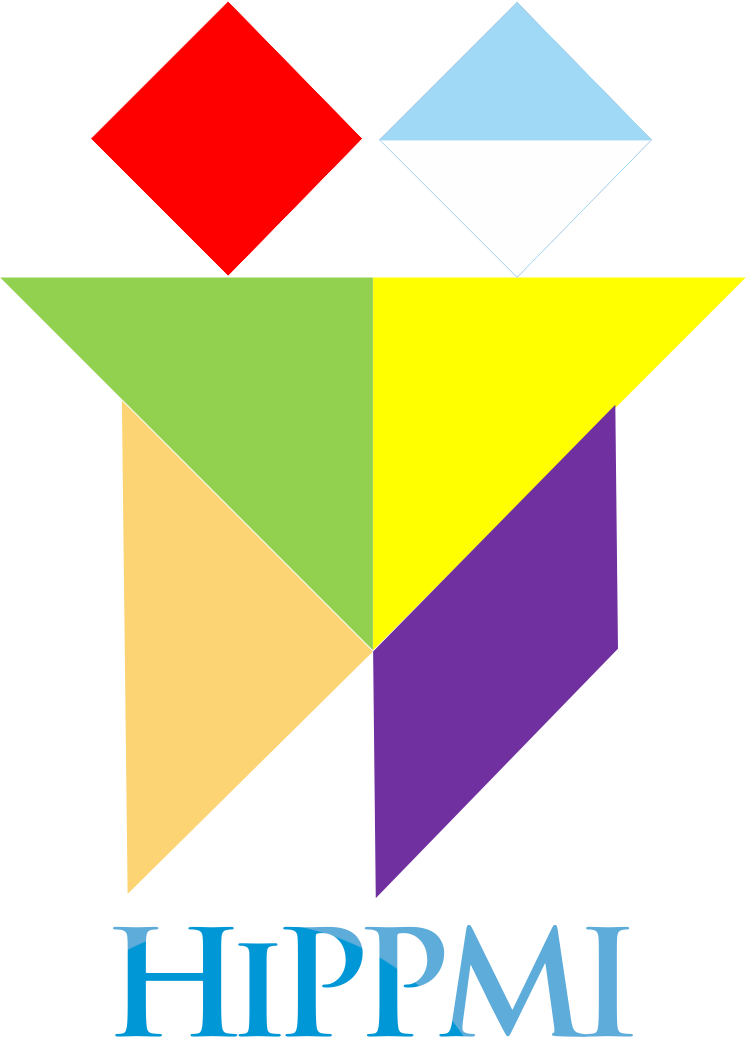PENGARUH PENGGUNAAN MODEL PEMBELAJARAN ANCHORED INSTRUCTION TERHADAP PENINGKATAN KEMAMPUAN KOMUNIKASI MATEMATIS DAN SELF-CONCEPT SISWA
Abstract
Abstrak: Penelitian ini bertujuan untuk menelaah perbedaan kemampuan komunikasi matematis dan Self-Concept antara siswa yang mendapatkan pembelajaran menggunakan model Anchored Instruction dan siswa yang mendapat pembelajaran konvensional. Penelitian ini merupakan suatu studi kuasi eksperimen dengan desain penelitian pre-test post-test control group design. Subjek populasi adalah seluruh siswa kelas X SMA Negeri 3 Banda Aceh dengan mengambil sampel dua kelas (kelas eksprimen dan kelas kontrol) melalui teknik random sampling dari delapan kelas paralel yang tersedia. Pengumpulan data dilakukan dengan menggunakan dua macam instrumen yaitu tes dan non tes. Tes meliputi tes kemampuan komunikasi, skala Self-Concept, bahan ajar berupa LKS komunikasi matematis dan non-tes (lembar observasi). Untuk melihat adanya perbedaan kemampuan siswa antara kelompok Anchored Instruction dengan kelompok konvensional digunakan uji-t pada taraf signifikansi 0,05 setelah prasyarat pengujian terpenuhi. Dari data dan hasil uji statistik kemudian dianalisis dengan bantuan SPSS 16 For Windows dan Microsoft Excel 2007 untuk menginterpretasikan kemampuan komunikasi matematis siswa serta Self-Concept siswa terhadap pembelajaran dengan model Anchored Instruction. Berdasarkan hasil penelitian, diketahui bahwa 1) Kemampuan komunikasi matematis siswa yang memperoleh pembelajaran dengan menggunakan model Anchored Instruction lebih baik daripada siswa yang memperoleh pembelajaran konvensional; 2) Self-Concept siswa yang memperoleh pembelajaran dengan menggunakan model Anchored Instruction lebih baik daripada siswa yang memperoleh pembelajaran konvensional; (3) Peningkatan kemampuan komunikasi matematis siswa yang memperoleh pembelajaran menggunakan model Anchored Instruction lebih baik daripada siswa yang memperoleh pembelajaran konvensional yaitu pada kategori sedang; (4) Peningkatan self-concept siswa tentang matematika yang memperoleh pembelajaran menggunakan model Anchored Instruction lebih baik daripada siswa yang memperoleh pembelajaran konvensional yaitu pada kategori rendah; (5) Terdapat korelasi antara kemampuan komunikasi matematis siswa dan Self-Concept siswa tentang matematika. Penggunaan model Anchored Instruction dalam pembelajaran terbukti dapat mempengaruhi kemampuan komunikasi matematis dan Self-Concept siswa menjadi lebih baik, secara kualitas terdapat perbedaan yang signifikan antara siswa yang pembelajarannya menggunakan model Anchored Instruction dan yang menggunakan pendekatan konvensional.
Abstract: The aim of this research was to comprehend the differences of self concept and mathematical communication ability among students who were taught by using Anchored Instruction teaching model and students who were taught by using conventional one.This research was a quasi experimental study with pre-post test control group as the research design. The population of this research was all students of grade 10th of SMAN 3 BNA with two classes as samples (experiment and control groups) which were taken through random sampling technique of eight parallel classes. The data collection was done by using two kinds of instruments; test and non test instruments. Test included communication ability, self concept scale, teaching material of anchored instruction of student worksheet, and non test (observation sheets). To find the differences of students’ ability between anchored instruction group and conventional group, t-test with significant level of 0, 05 was used. From the data and statistic analysis, results then were analyzed by using SPSS 16 For Windows and Microsoft Excel 2007 to interpret the students’ mathematical communication ability and self concept toward Anchored instruction teaching model. Based on the research result, it was found that 1) the mathematical communication ability of the students who were taught by using Anchored Instruction teaching model was better than those who were taught by using conventional teaching approach. 2) Self concept of students who were taught by using Anchored Instruction teaching model was better than those of who were taught by using conventional teaching approach. 3) The improvement of mathematical communication ability of students who were taught by using Anchored Instruction teaching model was better than those of who were taught by using conventional one which was in medium level. 4) The improvement of self concept of students who were taught by using Anchored Instruction teaching model was better than those of students who were taught by using conventional group which was in low level. 5) There was correlation between students’ mathematical communication ability and self concept about mathematics. The using of Anchored Instruction in teaching had been proven that could influence the mathematical communication ability and self concept of students become better in quality. There was a significant difference between students who were taught by using Anchored Instruction teaching model and students who were taught by using conventional approach.
Keywords
Full Text:
PDFReferences
Herman, T. (2005). Pembelajaran Berbasis Masalah untuk Meningkatkan Kemampuan Berpikir Matematis Tingkat Tinggi Siswa Sekolah Menengah Pertama. Disertasi pada SPs UPI Bandung. Tidak diterbitkan.
Ibrahim. (2010). Pengaruh Model Pembelajaran Anchored Instruction terhadap Prestasi Belajar Matematika Siswa SMA. Tesis SPs UPI Bandung. Tidak diterbitkan.
Irawan, E. (2010). Evektivitas Teknik Bimbingan Kelompok untuk Menigkatkan Konsep Diri Remaja (Studi Pre-Eksperimen Pada Siswa Kelas X SMK Yapema Gadingrejo Lampung). Tesis SPs UPI Bandung. Tidak diterbitkan.
Javier, F. (1996). “Relationships Between Self-Concept and Academic Achievement in Primary Students”. Journal of Research in Educational Psychology and Psychopedagogy. 1, (1), 95-120.
Juariah. (2008). Meningkatkan Kemampuan Penalaran dan Kemampuan Komunikasi Matematis Siswa melalui Pendekatan Keterampilan Proses Matematika. Tesis pada PPs UPI Bandung: Tidak diterbitkan.
Qahar, A. (2010). Mengembangkan Kemampuan Pemahaman, Koneksi dan Komunikasi Matematis Serta Kemandirian Belajar Matematika Siswa SMP melalui Reciprocal Teaching. Tesis PPs UPI Bandung. Tidak diterbitkan.
Rahman, R. (2010). Pengaruh Pembelajaran Berbantuan Geogebra terhadap Kemampuan Berpikir Kreatif dan Self-Concept Siswa. Tesis SPs UPI Bandung. Tidak diterbitkan.
Ruseffendi, E. T. (1991). Pengantar Kepada Membantu Guru Mengembangkan Kompetensinya dalam Pengajaran Matematika untuk Meningkatkan CBSA. Bandung: Tarsito.
Salbiah. (2003). Konsep Diri. Program Studi Ilmu Keperawatan Fakultas Kedokteran USU. Tidak diterbitkan.
Sudjana. (2004). Metode Statistika. Jakarta: Tarsito.
Sugiyono. (2010). Metode Penelitian Kuantitatif Kualitatif dan R & D. Bandung: CV Alfabeta.
Sumarmo, U. (2006). Pembelajaran Keterampilan Membaca Matematika Pada Siswa Sekolah Menengah. Bandung: FPMIPA UPI.
Turmudi. (2008). Landasan Filsafat dan Teori Pembelajaran Matematika (Berparadigma Eksploratif dan Investigatif), Bandung: Lauser Cita Pustaka.
Wahyudin. (2008). Pembelajaran dan Model-Model Pembelajaran. Bandung: UPI.
DOI: https://doi.org/10.17509/sigmadidaktika.v1i1.49407
Refbacks
- There are currently no refbacks.
e-ISSN: 2987-3894
p-ISSN: 2252-7435
This work is licensed under a Creative Commons Attribution-ShareAlike 4.0 International License.









